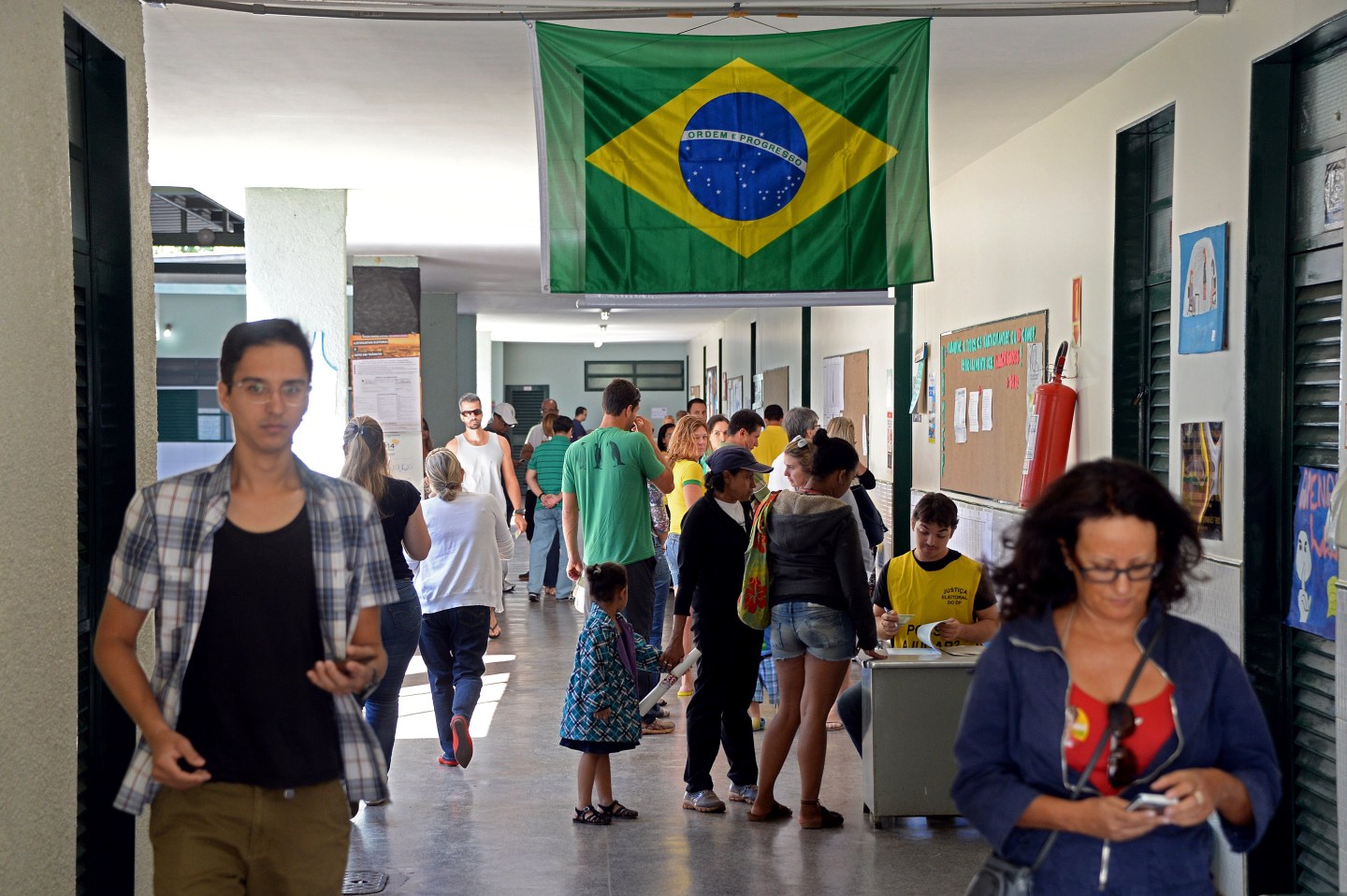Dilma Rousseff looks set to be re-elected as Brazil’s President after a clear victory in the first round of polls at the weekend.
But in a development that surprised many pollsters, Rousseff, who heads the center-left Workers Party (PT) will have to face off against the pro-business centrist candidate of Aecio Neves rather than the environmentalist Marina Silva in the second round. Rousseff won 41.6% of the vote, while Neves garnered 33.6% and Silva–who had briefly led in the polls in the earlier stages of the campaign–trailed in third on 21.3%.
That sets the country up for three more weeks of campaigning in which the failing health of Latin America’s largest economy looks likely to take center stage. The country fell back into recession in the second quarter for the first time since 2009, as falling commodity prices exposed Rousseff’s inability to find alternative sources of growth during her first term.
The ex-bureaucrat Rousseff, known to her supporters as Dilma, is still the clear favorite to win the second round, even though her margin of victory in the first round was much narrower than most opinion polls had suggested.
The final round will, as is usual, depend to a large extent on how successfully the remaining two candidates can appeal to those who were knocked out after the first round. In order to beat Rousseff, Neves will have to pick up the overwhelming majority of Silva’s votes. That could be a tall order, says Daniel Hamilton, a partner at PR firm Bell Pottinger in London. He points out that Silva had been losing support equally to Rousseff and Neves in the weeks leading up to the poll, and there is no real reason for that pattern to change in the next three weeks, he says.
“It’s not impossible, but it is unlikely,” Hamilton said.
Brazil’s financial markets, which have been in a tailspin for months as the gloss has come off a country that used to be the darling of foreign investors, have already bounced in the last couple of days, as the possibility of a Neves victory–however slim–came into sight.
The real, regained 2% against the dollar after a stomach-turning month in which it had lost over 10%, while the benchmark Bovespa stockmarket index bounced 1.9% on Friday, helped by as a strong September employment report allayed fears of a slowdown in the global economy.






